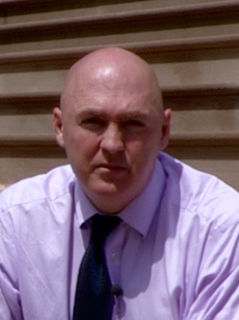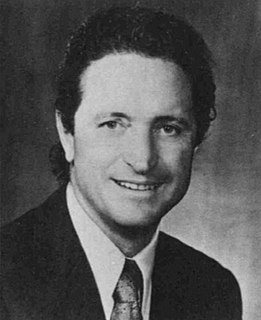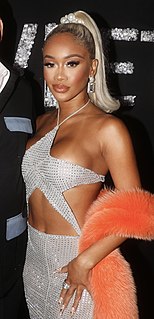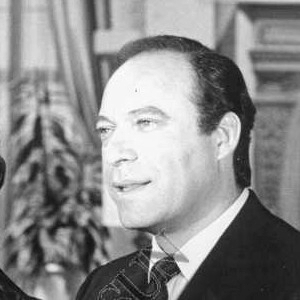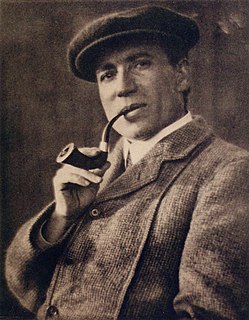A Quote by Christiane Amanpour
I was planning, I told everybody, to take him on the road with me. At the very least I fully expected to keep up my hectic pace, and my passion as a war correspondent.
Related Quotes
She looked up at him and said,"What did you say?" "You have beautiful eyes." "You told my father that he has beautiful eyes?" He smiled. "No. You distracted me. I told your father that, while I was very grateful for the lesson, I doubt I would ever need of it again- because I was planning to court only one woman in my lifetime.
I went into a restaurant one night and ordered lobster, and the waiter brought me one with a claw missing. I called him over and told him about it. He told me that in the back there's a tank they keep the lobsters in and while they're in there, they fight and sometimes one loses a claw. I told him 'then bring me a winner.'
When a man of normal habits is ill, everyone hastens to assure him that he is going to recover. When a vegetarian is ill (which fortunately very seldom happens), everyone assures him that he is going to die, and that they told him so, and that it serves him right. They implore him to take at least a little gravy, so as to give himself a chance of lasting out the night
I don't like the definition 'war correspondent'. It is history, not journalism, that has condemned the Middle East to war. I think 'war correspondent' smells a bit, reeks of false romanticism: it has too much of the whiff of Victorian reporters who would view battles from hilltops in the company of ladies, immune to suffering, only occasionally glancing towards the distant pop-pop of cannon fire.
Being in this fine mood, I spoke to a little boy, whom I saw playing alone in the road, asking him what he was going to be when he grew up. Of course I expected to hear him say a sailor, a soldier, a hunter, or something else that seems heroic to childhood, and I was very much surprised when he answered innocently, 'A man.'
I would stay away from him and leave him to go his own road where there would be other women, countless other women, who would probably give him as much physical pleasure as he had had with me. I wouldn’t care, or at least I told myself that I wouldn’t care, because none of them would ever own him—own any larger piece of him than I now did.

